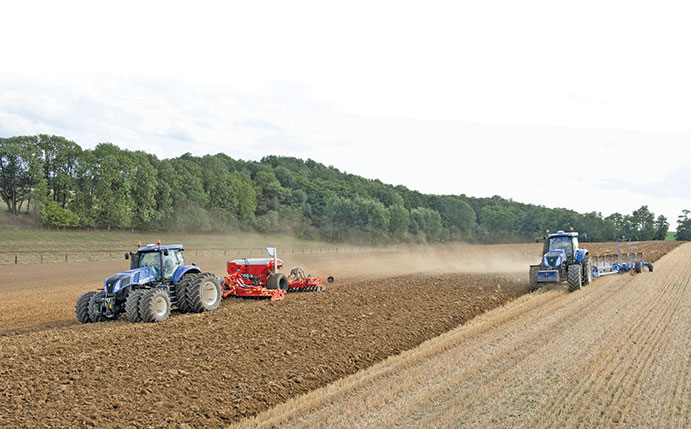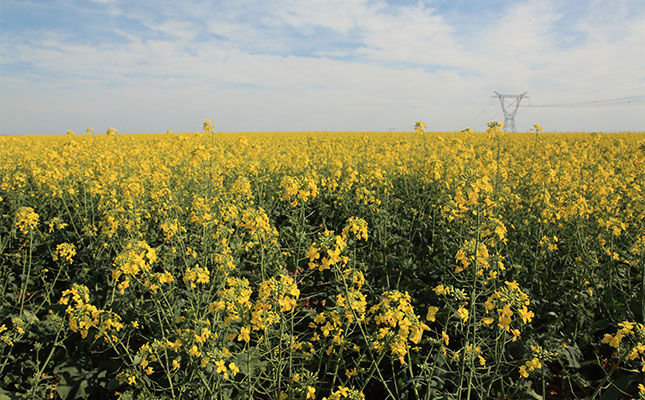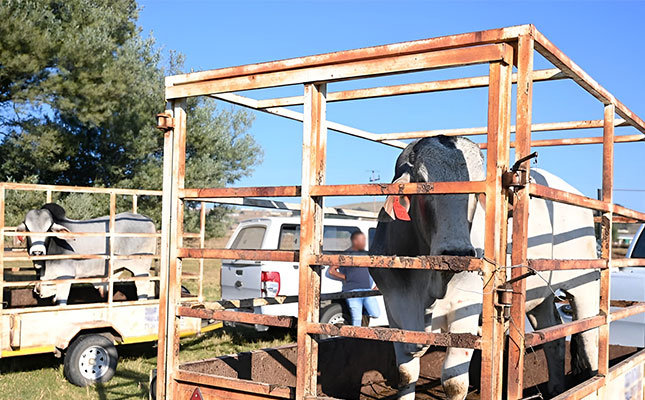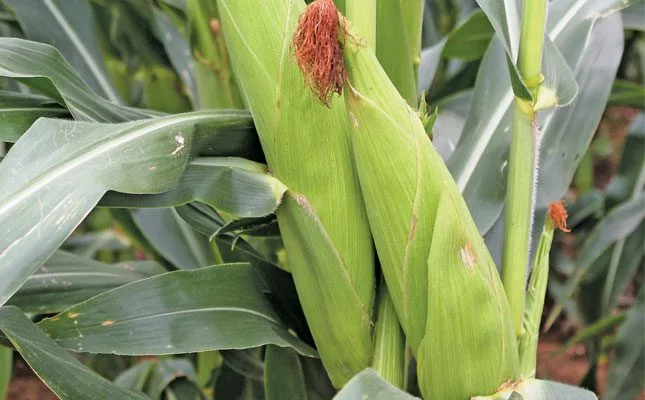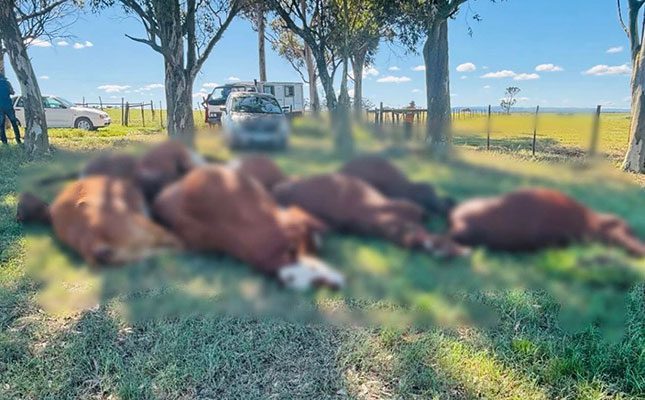
“The cattle were all found dead in the same camp and symptoms [included] drooling from the mouth and bloating,” Agri EC said.
It was suspected that the cattle had died from consuming toxic grass as a result of armyworm strikes. This was indicated by a private veterinarian after performing a post-mortem. However, samples have been collected and sent to the state veterinarian for further analysis.
Cattle farmers have been urged to be vigilant as armyworm strikes on kikuyu grass can cause the grass to release cyanide-like chemicals that make the grass toxic to cattle.
“Cattle may become sick and show symptoms only days later, which may lead to fatalities,” Agri EC said.
The organisation had first warned cattle farmers of the emergence of African armyworm on 4 April, with breakouts in the Berlin and Kwelega areas. This followed outbreaks in other provinces of South Africa, including the North West, Limpopo, Gauteng, Mpumalanga and the Free State.
Agri EC urged farmers to scout their lands every day and to report any sightings or incidences of African or fall armyworm to the Agri EC control room.
“If cattle are on pastures where armyworms are present, these cattle should be removed immediately, and a vet should be called to examine the animals for any intervention required,” Agri EC said.
In response to questions from Farmer’s Weekly, the state veterinarian said that while results of the samples were still pending, officials that had visited the farm where the cattle had died did not observe any African or fall armyworms, and could not confirm armyworm strikes as the cause of death as this stage.
Consumer health
Meanwhile, consumer health concerns have also been raised following the death of the cattle after the Eastern Cape Department of Rural Development and Agrarian Reform recently issued a statement on social media in reaction to reports that meat from the dead animals was being consumed.
“The department of agriculture in the Eastern Cape strongly condemns, in the harshest possible terms, consumption of meat from animals that have died from unknown causes, following the recent death of over 85 cattle on a farm near Hope Fountain outside Makhanda,” provincial MEC Nonceba Kontsiwe said in a statement on Facebook.
She urged communities and residents not to consume or distribute the meat. “Authorities are currently investigating the cause of the death. The veterinary teams are deployed to assess the situation,” she said.
Contact
Farmers who wish to report any possible sightings or incidences of African or fall armyworm can message or WhatsApp Megan Maritz on 063 781 8594, or the Agri Control Room on 060 997 4503. The message should include the farm’s GPS location, farm name, contact particulars, a photo of the worm and approximate infection size (in hectares).
Dr Gerhard Verdoorn explains how armyworms pose a risk to crops and livestock |


